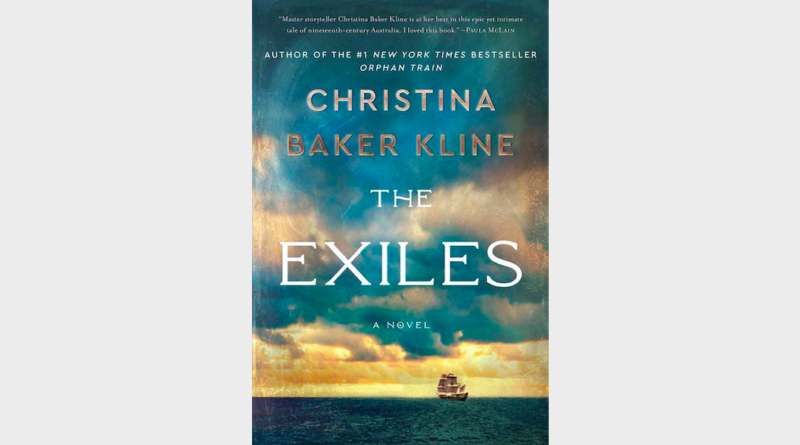REVIEW: ‘The Exiles’ by Christina Baker Kline
Image courtesy of Custom House / Provided by official site.
Christina Baker Kline’s new book The Exiles is a powerful piece of historical fiction that looks at the difficulties faced by female prisoners who were shipped from England to Australia and Van Diemen’s Land (Tasmania) in the 19th century. The details in this 300-plus-page book are harrowing to behold. The women face unfair imprisonment due to trumped-up charges that speak to the sexism of the times, and their sentences involve squalid living conditions, solitary confinement, malnourishment, seasickness, systemic discrimination and virtually no resources to survive. When a woman is imprisoned while pregnant, the conditions for the mother and child are simply horrible.
Populating this historical tale are strong characters who try to outlast the death that is constantly knocking on their door. There’s Evangeline, who finds herself in the first few pages accused of stealing a fancy ring from the family she works for. The fact that she has been a dedicated governess to the wealthy family doesn’t seem to help her case, and her pleas that the ring was actually given to her by an older son in the house are met with disbelief. After shoving another house employee down a flight of stairs, in a momentary act that seals her fate, Evangeline is arrested not only for theft but also attempted murder.
Her life in Newgate Prison in London is atrocious. She lives in cramped, dark, dank quarters with other women and their children, and they are not too accepting of her as a new inmate. The fleas and rats keep her woeful company, and she quickly finds out that there’s no chance to mount a winning defense. She was essentially tried and convicted at the point of arrest, and with no family to vouch for her, she has no other option but to accept her 14-year sentence in the far-off land of Australia. Complicating matters is the fact that she’s pregnant, and now she must board a former slave ship for a hellish four-month journey across the globe.
Other key characters in the narrative include Hazel, a young girl who befriends Evangeline on the boat. She has a wonderful knowledge of midwifery because of her mother’s profession and also how to apply herbs for all types of illnesses. The two become unlikely friends, and Hazel is prepared to help Evangeline with her pregnancy aboard the ship.
Olive is someone who makes the journey across the ocean as well. She’s seemingly more used to these degrading conditions and offers support and guidance to Evangeline, who very much feels like a stranger in a strange land. There’s also Mathinna, a young girl who is from the Lowreenne tribe and is essentially kidnapped by the governor of Van Diemen’s Land. The governor’s wife takes a liking to Mathinna and wants to “civilize” her life and show her off to some English friends. This part of the book, with vivid and scary details of the racism that the young girl faces, is extremely difficult to get through. Mathinna is taken advantage of, forgotten about, pulled from her family and traditions, and put on display like a theatrical production.
These women eventually connect in unique and surprising ways. Kline has a deft hand at building the narrative in an easy-to-understand fashion that creates a variety of storytelling webs. One can guess in the first few pages that the boat carrying Evangeline, Hazel and Olive is headed toward Mathinna, and that at some point there will be a meeting.
On occasion, because the bulk of the novel deals with Newgate and the ship’s crossing, the story can feel like a long prologue. It’s only in the final 100 pages that the actual prison sentence on Van Diemen’s Land begins. It appears Kline is as interested in the conditions of the final sentence as she is on the journey of how a woman finds herself plucked from London and then transported a world away. It’s a smart choice to not rush the early stages of this epic tale because these worrying conditions are a central tenet of the story; they show, with concrete description, what female convicts had to endure in a legal and penal system that stacked the odds against them.
In 2020, it’s important for readers to hear these historical lessons. Although The Exiles is a work of fiction, it is based on reality. Sprinkled throughout the book are actual passages from the record books of how discriminatory these practices were, of the racism found against indigenous communities in Australia and Tasmania, and of the many obstacles placed in front of women, especially poor women, in the 19th century. There are parallels to today’s society, and making those connections are part of the power of reading Kline’s thoughtful words.
By John Soltes / Publisher / John@HollywoodSoapbox.com
The Exiles by Christina Baker Kline. 384 pages. Custom House. $28. Click here for more information.

